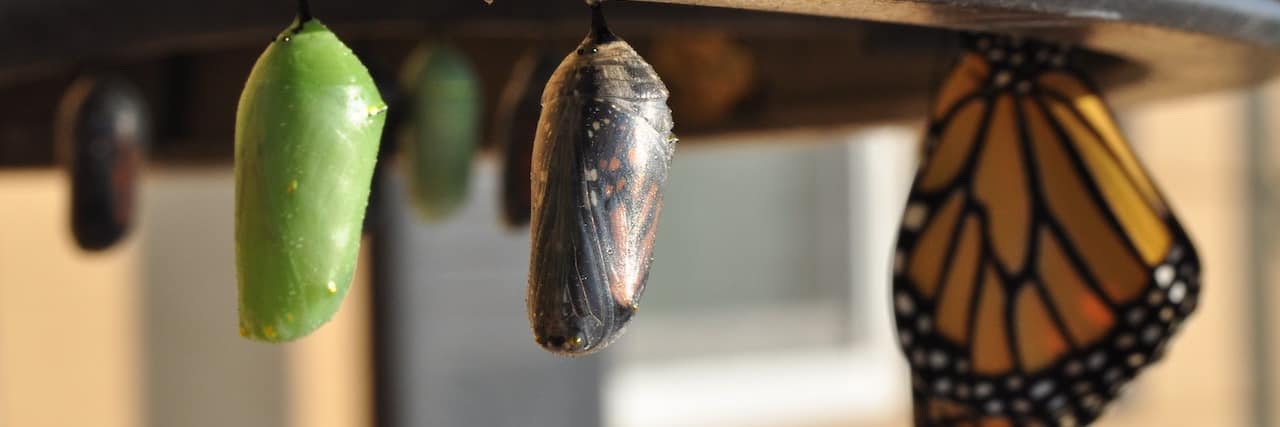Two and half ago, I was having a panic attack in a public park. My partner had taken me there in an attempt to calm me down, but nothing was helping. I couldn’t shake the feeling that this buzz about “coronavirus” was the start of something very, very bad.
Two and half years ago, I was walking back to my apartment, iced coffee in hand, when my phone lit up with the news that schools were being closed for six weeks. I walked inside, locked my door, and watched as the world stopped moving.
It feels like a lifetime since those days, when we first shut ourselves inside and tried to bury our fears beneath sub-par television (here’s looking at you, Tiger King). I’m the last one to subscribe to toxic positivity, especially with a world in crisis. But in the midst of it all, I’ve noticed something beautiful:
We’re changing, and dramatically so. We locked our old selves indoors two years ago, and we’re walking back into the world transformed.
I’ve spoken to countless friends, acquaintances, and colleagues about this phenomenon, which I like to call the “Chrysalis Effect.” Here’s what I’ve found:
We embrace stillness.
Before the pandemic, I was constantly doing. I measured my self-worth on the quantity and quality of my plans. The thought of being in my own space for more than a few hours felt like a tragic waste. I was constantly chasing a feeling of external fulfillment, never stopping for long enough to investigate why.
Now, stillness is a state that I love and crave. When the concept of “plans” became socially irrelevant, we were forced to ask ourselves whether this constant motion was something we actually valued or whether it was just what we thought we were supposed to value. It may seem simple, but for me, that question alone opened the door to a rediscovery of what actually matters to me. I’m eternally grateful for it.
We protect our peace.
What we’ve gone through in the last two years is trauma, and it lives on in our brains and our bodies. We’re tired. We’re angry. We’re anxious, sad, and scared. In order to take care of our minds during times like these, we have to put ourselves first in a way we never did before. It’s why overwhelming numbers of us are refusing to work in oppressive conditions, setting boundaries with toxic family members, and being loud and clear about our limits. Through all of this, we’ve learned that a sense of personal peace is worth working for.
We’re more aware of each other.
No, I don’t just mean the kind of awareness that comes when the person behind you in the checkout line isn’t standing on their social distance tape marking. I mean the awareness that comes from realizing that the people around us have also gone through something horrible. The awareness that, although the impacts of the pandemic have been incredibly disproportionate, everyone is hurting and burning out in some way. I’ve seen this awareness play out in my classroom, where students treat each other with a level of grace and empathy that I’ve never seen before. I see it in my community, where more and more people are actively participating in mutual aid campaigns to share resources directly with those who need them. I feel it in interactions between strangers on the street. We may be cautious of each other, but we’re feeling for each other, too.
Does this make the pandemic worthwhile? Of course not. The people we were on March 11, 2020 are never coming back. But as I look at the people we’re becoming, I think that maybe, just maybe, there could be some light emerging from it all.
Photo by Suzanne D. Williams on Unsplash

